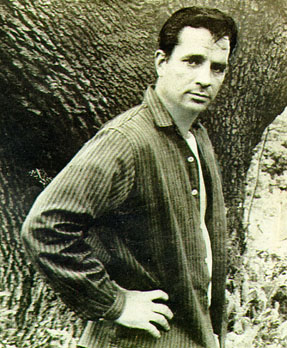Tenure and Promotion Time: False Positives and Negatives

“. . . and nobody, nobody knows what's going to happen to anyone besides the forlorn rags of growing old . . ..”
Jack Kerouac, On the Road
At many schools ‘tis the season for faculties to meet and make decisions about promotion and tenure. I do not know about other Schools but at mine the faculty decision and the Dean’s recommendation may or may not be approved by the University. They almost always are but, at least as it is told to me, there is a fair amount of grumbling. Having oversight of a captured faculty’s decision making is probably a good idea but part of the problem of tenure and promotion systems like this one is the fear of unfair oversight. This problem seems especially pressing to me because my School runs what I regard as a relatively clean tenure and promotion process and has recently made excellent decisions.
Here is the problem. No untenured or tenured person writes an article that could not be better and some write ones that fall quite short. A law faculty needs this information but social concerns and faculty needs to “make nice” dictate that internal reviews be soft. Anyone who has opposed someone who has then been granted tenure, as I have, knows the true meaning of “holding a grudge.” Outside letters by honest reviewers -- those who go further than the occasional "quibble" -- containing more than a smidgeon of negativity may keep an excellent faculty member from being promoted. For this reason and others I have written about, the market for “easy writers” emerges. Faculties go back to the “easy writer” well to protect untenured faculty in whom they are vested. Sometimes those are also deserving faculty and, unfortunately, sometimes they are not. In fact, one of the most unfortunate aspects of current system is that the effort to protect weak candidates from close scrutiny means diluting the praise for highly successful candidates.
How does the system of mutual distrust come to be. There is probably blame on each side. Sometimes the objective of a tenure and promotion committee is to “get the candidates through.” That pretty much means any candidate who fits in socially. For example, at my School, for over a decade there was only 1 “no” and even fewer people informally encouraged to move on. Every candidate had great inside and outside review letters. Unless hiring committees were infallible, this was nonsense. The credibility of the Law School’s system suffered. I do not think for a minute that my school’s history is worse than that of others. Still, even thought we have now had a very good run of junior faculty, I cannot be confident that the faculty will say no to someone who makes enough "nice" both socially and politically to overcome poor scholarship and teaching.
On the other hand, having served on University tenure and promotion committees and on a social science faculty I know how common it is to under-appreciate the effort and analysis that goes into a well done law review article. It may take a year or more of steady effort. A multi-coauthored 15 page article based on an econometric study seems easy by comparison.
This difference in perspective, along with justified distrust, and the cultural differences between law professors and professors in virtually every other discipline increases both the risk of false positives and negatives.













0 Comments:
Post a Comment
<< Home